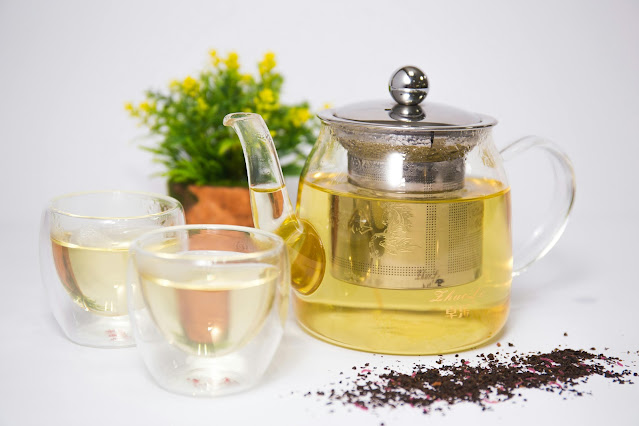How to Reduce Period Pain
How to Reduce Period Pain (Dysmenorrhea)
Dysmenorrhea ( period pain) refers to the medical term for menstrual cramps or pain associated with menstruation. It is a common condition experienced by many menstruating individuals and can range from mild to severe. Dysmenorrhea can be classified into two main types:
Primary Dysmenorrhea
This is the more common type of menstrual cramps and is not associated with any other medical condition. It usually begins 1-2 days before menstruation starts and may last from 2 to 4 days.
Primary dysmenorrhea is often linked to the release of prostaglandins, hormone-like substances that cause the uterus to contract, leading to pain and cramping.
Secondary Dysmenorrhea
This type of menstrual pain is usually caused by an underlying reproductive health issue, such as endometriosis, uterine fibroids, or pelvic inflammatory disease.
The pain in secondary dysmenorrhea may begin earlier in the menstrual cycle and last longer than primary dysmenorrhea.
Symptoms of Dysmenorrhea
Symptoms of dysmenorrhea may include:
- Cramping pain in the lower abdomen that may radiate to the lower back and thighs.
- Pain ranging in intensity from minor to severe.
- Nausea, vomiting, and diarrhea in some cases.
- Headaches or dizziness.
How to Reduce Period Pain – Over-the-Counter Pain Reliever
Non-prescription medications like ibuprofen (Advil, Motrin) or naproxen (Aleve) can help alleviate menstrual cramps by reducing inflammation and pain. It’s crucial to take medication as prescribed and speak with a doctor if you have any questions or underlying medical issues.
How to Reduce Period Pain – Heat therapy
Applying heat to the lower abdomen can help relax the muscles and alleviate cramps. You can use a heating pad, hot water bottle, or take a warm bath to ease the discomfort.
How to Reduce Period Pain – Exercise
Regular physical activity can help reduce menstrual pain. Endorphins are the body’s own painkillers, that body releases after exercise. Walking, swimming, and yoga are a few healthful hobbies.
How to Reduce Period Pain – Dietary Changes
- Some people find relief by making dietary adjustments. Consuming foods rich in omega-3 fatty acids (found in fish, flaxseeds, and walnuts) may have anti-inflammatory effects, potentially helping to reduce menstrual cramps.
- Calcium is really good for muscle-relaxant properties. Include dairy products (if tolerated), fortified plant-based milk, leafy green vegetables, and almonds in your diet.
- Magnesium can help relax muscles and reduce cramping. Foods high in magnesium include dark leafy greens, nuts, seeds, whole grains, and legumes.
- Both caffeine and excess salt can contribute to water retention and bloating. Limiting the intake of caffeinated beverages and salty foods might help manage these symptoms.
- Eating smaller, more frequent meals throughout the day may help stabilize blood sugar levels and reduce mood swings and irritability.
How to Reduce Period Pain – Hydration
Staying well-hydrated is important for overall health, including during menstruation. Proper hydration can help reduce bloating and may alleviate cramps.
How to Reduce Period Pain – Herbal Treatments
Some herbs are believed to have anti-inflammatory properties that may help reduce menstrual pain. Here are some herbal teas that are best for their potential pain-relieving and calming effects:
Ginger Tea
Ginger has anti-inflammatory properties that may help reduce menstrual cramps. Fresh ginger slices steeped in hot water can be used to make ginger tea.
Chamomile Tea
Chamomile has anti-inflammatory and muscle-relaxant properties. Drinking chamomile tea may help soothe muscle cramps and promote relaxation.
Peppermint Tea
Peppermint has a calming effect and may help relax the muscles. It is also known for its potential to alleviate digestive discomfort, which can be beneficial during menstruation.
Raspberry Leaf Tea
Raspberry leaf tea is really good to support women’s reproductive health. Some believe it may help tone the uterine muscles and reduce cramping.
Cinnamon Tea
Cinnamon has anti-inflammatory and antispasmodic properties. It may help ease menstrual cramps and provide a comforting flavor.
Fennel Tea
Fennel is good for its anti-inflammatory and antispasmodic effects. It may help relax the muscles and reduce menstrual pain.
Dandelion Tea
Dandelion tea has diuretic properties and may help reduce water retention and bloating, which are common symptoms during menstruation.
How to Reduce Period Pain – Acupuncture or Acupressure
Acupuncture includes tiny needles inserted into particular bodily locations to stimulate energy flow and promote healing. It is believed that acupuncture may help regulate the body’s energy flow and reduce pain by affecting the nervous system and releasing endorphins.Some studies suggest that acupuncture may provide relief from menstrual pain.
Acupressure involves applying pressure to specific points on the body using hands, fingers, or devices instead of needles. Like acupuncture, acupressure aims to balance energy flow and promote wellness, but it is non-invasive and relies on pressure rather than needle insertion.
Some studies suggest that they may provide relief from menstrual pain.
How to Reduce Period Pain – Prescription Medications
Hormonal birth control methods can often reduce period pain. There are several types of hormonal birth control, including birth control pills, patches, injections, hormonal intrauterine devices (IUDs), and hormonal implants. These methods work by altering hormone levels in the body, primarily by suppressing ovulation and changing the uterine lining.
How to Reduce Period Pain – Essential Oils
Some essential oils, like lavender or peppermint, may have relaxing and pain-relieving properties. Dilute a few drops in a carrier oil and massage the mixture onto your abdomen.
How to Reduce Period Pain – Deep Breathing Exercises
Practice deep breathing exercises to relax your muscles and reduce stress. Deep, slow breaths can help calm your nervous system and ease pain.
How to Reduce Period Pain – Magnesium Supplementation
Some studies suggest that magnesium supplementation may help reduce menstrual cramps. Consult with a healthcare professional before adding any supplements to your daily life routine.


.jpg)

.jpg)